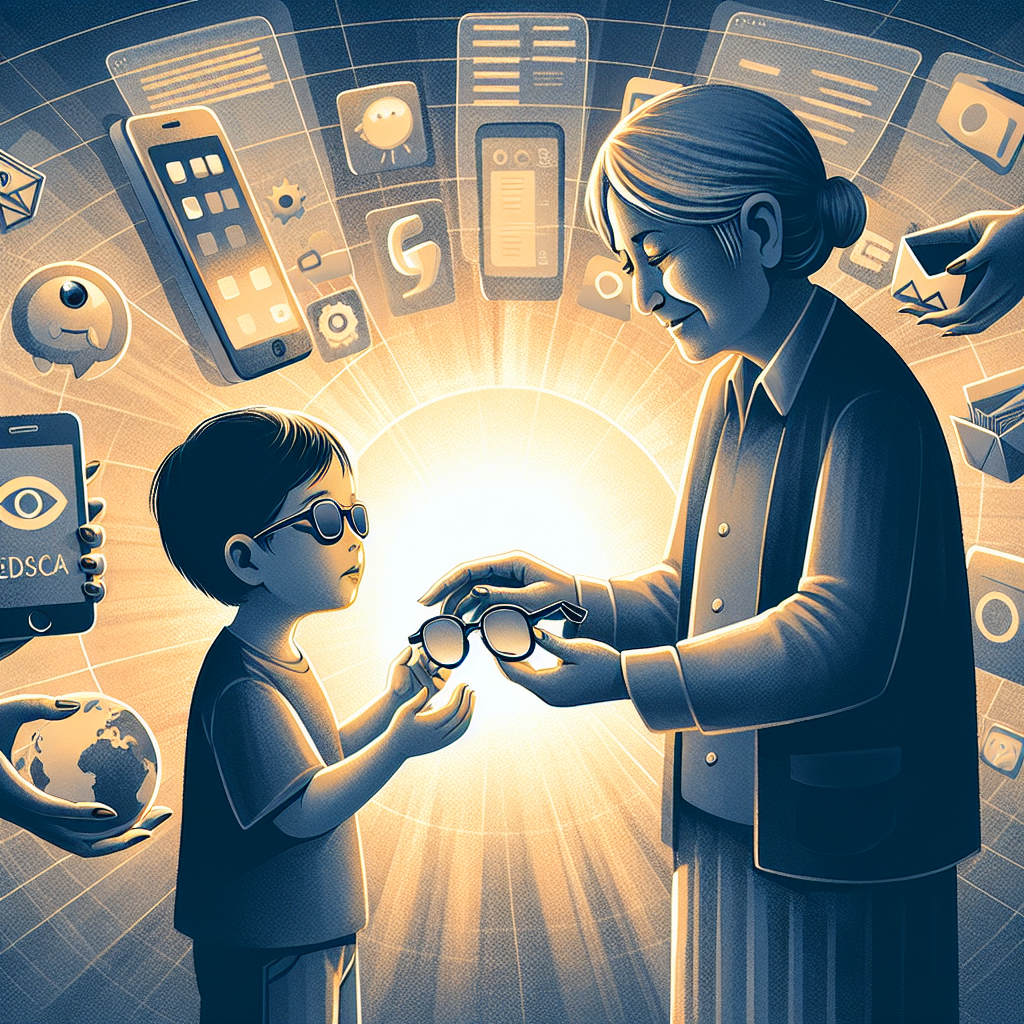Child Protection in the Digital Age: Advice from an Optometrist
Introduction
In a world dominated by technology, it is essential to understand the impact it has on the most vulnerable members of our society: children. This guide provides essential information on how to protect our children's vision and how to educate them to use technology in a way that will not affect their health. So let's move on to an expert optometrist's advice on protecting children in the digital age.
Child Development and Technology
As parents, it's important to understand that technology is neither good nor bad, it's just a tool. We need to be aware of how children interact with digital devices, because their development is deeply influenced by the environment in which they grow up.
The Impact of Screens on Motor Development
Screens can affect the development of fine motor skills. By limiting time spent on devices and encouraging physical play, children can improve their coordination and dexterity.
Sensory Development
Visual sensors are overstressed when children look at screens for long periods of time, potentially leading to long-term vision problems. Stimulating other senses through various activities is essential for harmonious development.
Tips for Protecting Your Child's Eyes
Prolonged exposure to screens can lead to a condition called "digital dry eye", which manifests itself as redness, dryness and eye fatigue. Here are some tips from an optometrist to protect your child's eyes:
Adjusting Screen Settings
It is important to adjust the brightness and contrast of device screens to reduce glare and make reading easier on the eyes.
20-20-20 rules
To prevent eye strain, try the "20-20-20" rule: for every 20 minutes spent looking at a screen, your child should look at something at least 20 feet away for 20 seconds.
Screen Time Control
Limiting screen time and encouraging frequent breaks is vital. By paying attention to the signs of eye strain in children, we can prevent long-term damage.
Language Development and Technology
A child's language can be affected by screen technology. By hearing words spoken correctly and having face-to-face conversations, children learn to communicate effectively.
Interactive Reading
Instead of screen games, reading books or interacting with educational apps can improve children's language skills.
Limiting Negative Content
It is essential to filter the content our children are exposed to to protect them from negative influences that can affect their language development.
The Role of Parents in the Digital Age
Parents have a crucial role in mediating the relationship between children and digital technology. Open communication and setting clear boundaries are essential.
Modeling Healthy Behavior
Children learn by imitation, so it's important for parents to have their own healthy technology use practices.
Digital Education
Teach your child about online safety and how to use technology in an informed and responsible way.
Conclusion
Technology is undoubtedly an integral part of our lives, but it is our responsibility as parents to manage how our children interact with it. By following the advice of the optometrist, we ensure that we provide the little ones with a healthy environment for their eyes and development. Remember, protecting children in the digital age is a priority and requires a balanced and informed approach.














































































































































